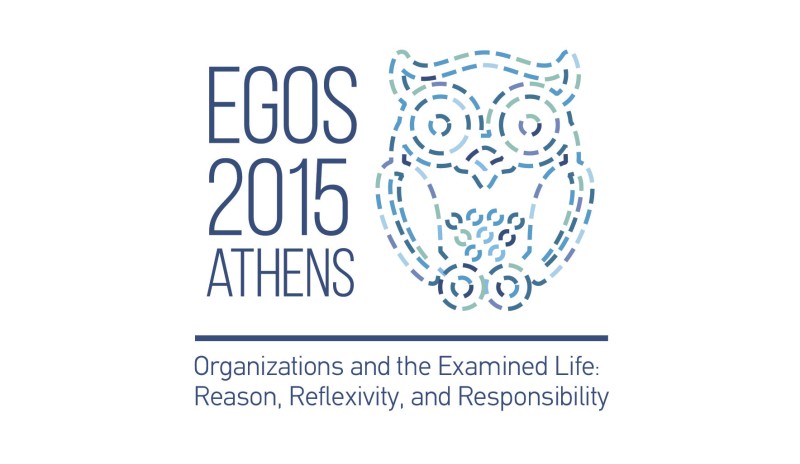Sub-theme 19: What Ancient Philosophy has to Teach Organization Studies
Call for Papers
Often in different contexts, philosophy in its long history has dealt with themes, issues, and questions very relevant
for, and similar with, those that Organization Studies currently investigate in the world of commercial and non-profit organizations.
For instance, starting from the historical model of the ancient Greek polis, a social entity not greater than some
modern corporations, Plato (427–348 BCE) in his "Republic" attempted to construct an ideal city-state, and investigated issues
of leadership (like the role of wisdom in ruling such a social organization, the probability that those who can rule are actually
given the chance to do so), justice (like the type of fairness that should govern such an organization) and many other issues
relevant to today’s organizations.
Aristotle (384–322 BCE), following the same tradition, dealt with a plethora
of ethical and organizational issues that scholars are still concerned with today, like the aim of a society, the relation
of the society to its members in terms of happiness and not only, the process of social integration, the social ties that
ensure its concord, the polarity of social stability and progress. The Stoics and the Epicureans both worked on the origins
of society and the nature of communal ties that could keep communities together in cooperation for mutual advantage, while
the Cynics questioned social conventions and argued for a version of cosmopolitan anarchism.
It is striking
that regardless of the potential contribution to organization studies that can emerge from the insightful study of ancient
philosophy, there is no organized forum where interested scholars can engage in a meaningful exchange of ideas. Even though
many authors have drawn on ancient philosophy to study various aspects of organization theory (Giovanola, 2005; Heugens et
al. 2006; Holt & Macpherson, 2010; Klein, 1988; Meisiek, 2004; Mintz, 1996; Solomon, 2004; Takala, 1998; Tsoukas &
Cummings, 1997), such contributions remain fragmented and there is no organized venue for authors to present and discuss their
research. Therefore, we believe that the proposed sub-theme, which aims to draw together and unify the above sporadic and
centrifugal scholarship, will be welcomed and that it would be possible to draw on some of the work presented during the conference
include in a special journal issue.
An indicative, and far from exhaustive, list of themes that would be relevant
to the proposed sub-theme could include:
- What lessons can we draw from ancient philosophy regarding the ethical decisions of managers and employees within organizations?
- Can virtue ethics be seen as an alternative paradigm to deontology and consequentialism for business organizations?
- What insights can we draw from the rich ancient discussion on leadership for our study and improvement of leadership in today's organizations?
- What is the potential impact of the Greek conceptions of justice to issues related to the trade-offs between the demands of various stakeholders or to the evaluation of redistribution claims among stakeholders?
- Could ancient proposals for ideal models of political organization offer methodological or substantial answers to our contemporary inquiry on the optimal structure and governance of organizations?
- Could the Platonic reason be a preferable substitute to the dominant in Organization Studies rationality?
- Could we apply the ancient notion of eudaimonia to Organization Studies today?
- How could the ancient philosophers' conception of social reality inform contemporary accounts of social ontology?
- How successfully do ancient conceptions of knowledge resonate with contemporary methodological developments about the scientific study of open/complex systems?
References
- Giovanola, B. (2005): "Personhood and human richness: good and well-being in the capability approach and beyond." Review of Social Economy, 63 (2), 249–267.
- Heugens, P.P., Kaptein, M., & van Oosterhout, J.H. (2006): "The ethics of the node versus the ethics of the dyad? Reconciling virtue ethics and contractualism." Organization Studies, 27 (3), 391–411.
- Holt, R., & Macpherson, A. (2010): "Sensemaking, rhetoric and the socially competent entrepreneur." International Small Business Journal, 28 (1), 20–42.
- Klein, S. (1988): "Plato's Statesman and the nature of business leadership: An analysis from an ethical point of view." Journal of Business Ethics, 7 (4), 283–294.
- Meisiek, S. (2004): "Which catharsis do they mean? Aristotle, Moreno, Boal and organization theatre." Organization Studies, 25 (5), 797–816.
- Mintz, S.M. (1996): "Aristotelian virtue and business ethics education." Journal of Business Ethics, 15 (8), 827–838.
- Solomon, R.C. (2004): "Aristotle, ethics and business organizations." Organization Studies, 25 (6), 1021–1043.
- Takala, T. (1998): "Plato on leadership." Journal of Business Ethics, 17 (7), 785–798.
- Tsoukas, H., & Cummings, S. (1997): "Marginalization and recovery: the emergence of Aristotelian themes in organization studies." Organization Studies, 18 (4), 655–683.


